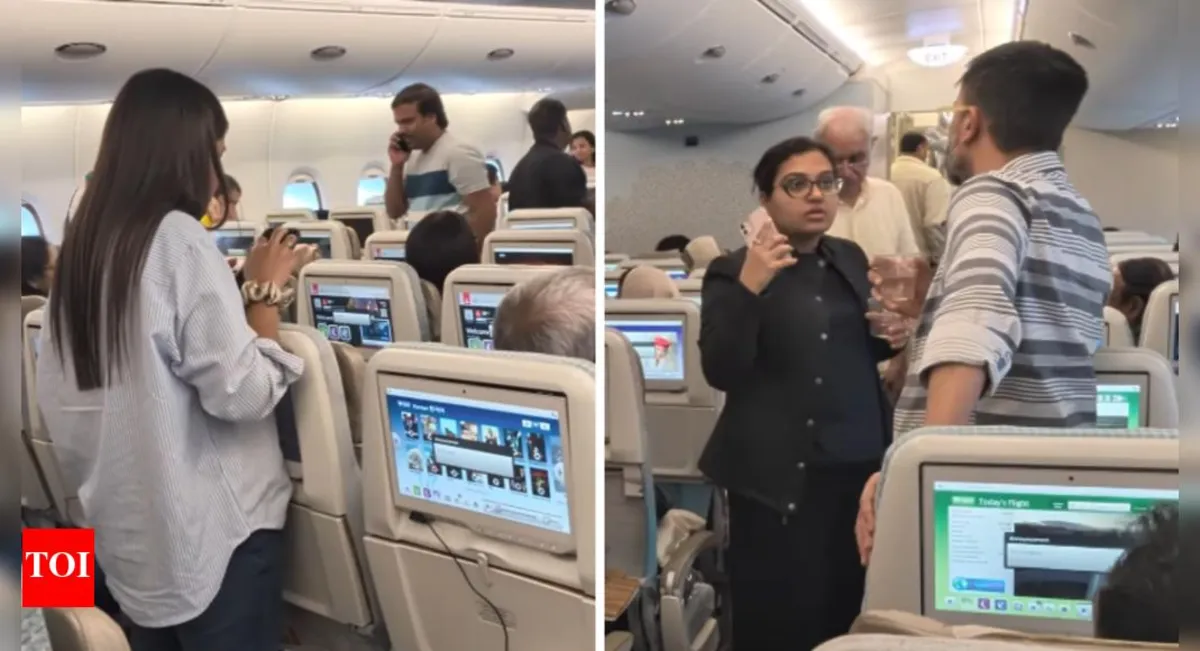
Panic erupted among Indian H-1B visa holders across the United States on Saturday after President Donald Trump signed a proclamation imposing a staggering $100,000 fee on new H-1B visa petitions. This unprecedented fee has led to scenes of chaos at airports, particularly at San Francisco International Airport, where many passengers feared they would face reentry issues if they left the country.
At SFO, several Indian passengers reportedly disembarked from an Emirates flight mere minutes before takeoff, anxious about the implications of the newly announced H-1B visa rules. The flight was delayed for over three hours as ground staff attempted to manage the sudden influx of passengers opting to exit the flight. Eyewitness accounts detail a scene filled with anxiety and confusion as travelers scrambled to make sense of the situation.
Videos circulating on social media platforms such as X and Instagram depict the chaos inside the cabin, showcasing a flight filled with Indian nationals who were visibly distressed by the news of the H-1B visa fee hike. One user described the scene: “An international flight packed with Indians (coming for Durga Puja) from the Bay Area had completed boarding and was due to leave SFO Airport when the news about the H-1B visa new rules just broke out. Indians aboard panicked and pleaded to get off the plane.”
The proclamation has triggered widespread anxiety within the Indian diaspora, prompting several major tech companies, including Microsoft, Amazon, and JP Morgan, to issue advisories to their employees holding H-1B visas. These firms urged employees to return to the US before September 21 or to avoid international travel altogether to minimize the risk of visa complications.
The increase from the current fee, which ranges between $2,000 and $5,000 based on employer size and other variables, to the astronomical $100,000 for new H-1B petitions has raised alarms among experts. They warn that this drastic hike could severely impact Indian professionals and the companies that heavily rely on the H-1B visa program. Typically, the H-1B visa is granted for three years, with the possibility of renewal for an additional three years, making it a vital component of the US job market for tech workers.
The recent announcement of the increased H-1B visa fees has sent shockwaves through the Indian tech community in the United States, creating a palpable sense of fear and uncertainty. As companies and employees navigate this sudden change, the implications could reshape the landscape for H-1B visa holders and the industries that depend on them.
Stay updated on this evolving situation and follow us on social media for the latest news and insights.